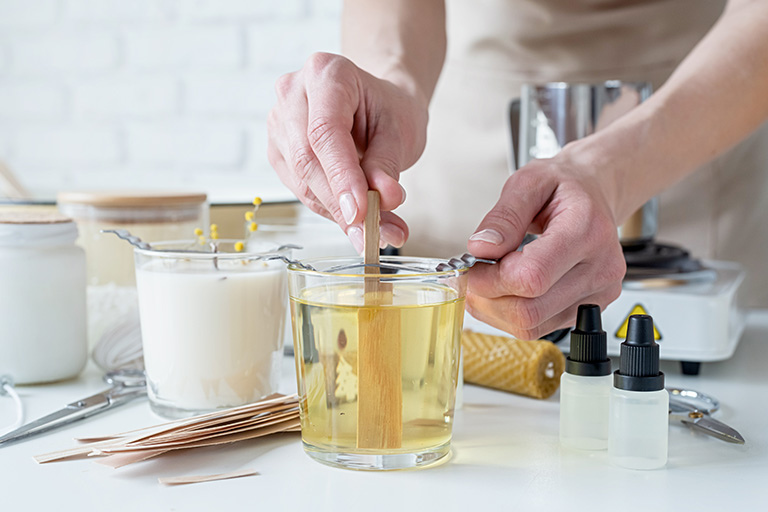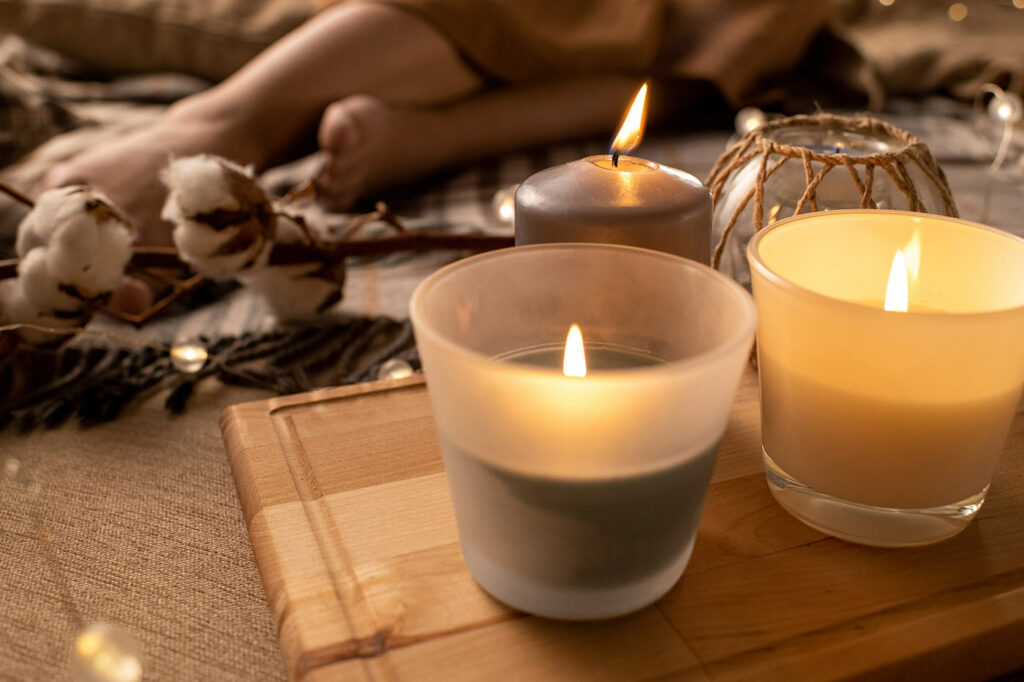Wax Blends Explained: Why Some Crafters Mix Candle Waxes

Creating the perfect candle involves more than just choosing a pleasant scent. For many crafters, the art of mixing different types of candle wax is key to achieving the ideal burn, fragrance throw, and aesthetic. But why exactly do crafters mix candle waxes? In this guide, we’ll explore the benefits of wax blends and how they can enhance your candle-making endeavors.
Understanding Candle Wax Types
Before diving into the blending process, it’s important to understand the different types of candle wax available. Each type has unique properties that affect a candle’s performance and appearance.
- Paraffin Wax: Known for its excellent scent throw and vibrant colors, paraffin is a popular choice among many crafters.
- Soy Wax: A more eco-friendly option, soy wax offers a cleaner burn and is derived from soybeans.
- Beeswax: Prized for its natural honey scent and long burn time, beeswax is often used in premium candles.
- Palm Wax: Known for its unique crystalline finish, palm wax adds an aesthetic touch to candles.
The Benefits of Mixing Candle Waxes
Combining different waxes allows crafters to customize their candles to meet specific needs and preferences. Here are some reasons why mixing waxes can be beneficial:
Enhanced Burn Quality
By blending waxes, you can create a candle that burns more evenly and efficiently. For example, mixing soy wax with paraffin can improve burn consistency and scent throw.
Improved Scent Throw
Some waxes, like paraffin, have a stronger scent throw than others. Combining a high-scent throw wax with a more sustainable option like soy can yield a candle that smells wonderful without compromising on environmental considerations.
Unique Aesthetic Qualities
Mixing waxes can result in unique visual effects. Palm wax, for example, can add a distinctive crystalline pattern when mixed with other waxes.
How to Mix Candle Waxes
When mixing candle waxes, it’s important to experiment and test different ratios to find the perfect blend. Here are some tips to get started:
Start with Small Batches
When experimenting with new blends, start with small batches to avoid wasting materials. This approach allows you to test different combinations without a significant investment.
Consider Melting Points
Different waxes have different melting points. Ensure that the waxes you mix are compatible in terms of melting temperature to achieve a uniform blend.
Use Quality Materials
To ensure the best results, always use high-quality waxes.
Buying Wax for Blending
When buying wax for your blends, it’s crucial to choose reputable suppliers who provide detailed information about their products. Visit Candlewic for a wide selection of waxes suitable for blending.
Conclusion
Mixing candle waxes is not just a trend; it’s a technique that can elevate your candle-making skills. By understanding the properties of different waxes and experimenting with blends, you can create candles that are not only beautiful but also perform exceptionally well. Ready to start mixing? If you have any questions, feel free to contact us for expert advice.

